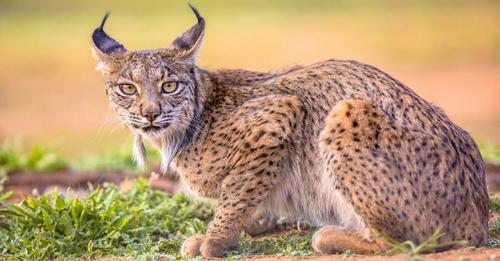One of the world’s rarest big cats has come back from the brink of extinction: thanks to conservation efforts, the Iberian lynx is no longer listed as endangered.
For decades, the Iberian lynx, a medium-size cat species native to the Iberian Peninsula in southwestern Europe, has been considered endangered, and were once thought to be on the brink of extinction.

Poaching, habitat loss, and the population decline of its main food prey, the European rabbit, all contributed to severe population loss throughout the 20th century. By 2001, things were looking dire as there were only 62 mature Iberian lynx left in their native habitat.
But conservationists launched a plan to save the species from extinction, with breeding programs, protection projects and restoration of their habitats.
They also reached out and educated local communities about the importance of the Iberian lynx in the ecosystem, which led to less poaching and roadkill. Efforts also focused on increasing the population of the European rabbit, ensuring a food chain.

The plan worked miraculously: 2022 data said that there are 648 adult specimens in reserves in Spain and Portugal, and there were an estimated 2,000 individuals worldwide including both adults and juveniles.
That’s a massive population increase and a testament to the power of coordinated conservation efforts. One conservation leader called it “the greatest recovery of a cat species ever achieved through conservation.”
“This success is the result of committed collaboration between public bodies, scientific institutions, NGOs, private companies, and community members including local landowners, farmers, gamekeepers and hunters, and the financial and logistical support of the European Union LIFE project,” Francisco Javier Salcedo Ortiz, coordinator of the LIFE Lynx-Connect project, said in a statement.

The Iberian lynx saw such a major population improvement that the IUCN no longer lists them as ” endangered” upgraded their status to “vulnerable.”
“It’s really a huge success, an exponential increase in the population size,” Craig Hilton-Taylor, head of the IUCN Red list, told AP.
“The significant recovery of the Iberian lynx demonstrates that even the most threatened species can be brought back from the brink of extinction through committed, science-based conservation action and provides hope for those working to protect wildlife across the globe,” said Sarah Durant, Professor at ZSL’s Institute of Zoology.

While it’s news worth celebrating, the Iberian lynx is not out of the woods yet, and experts will continue efforts to make sure the species continues to thrive in the wild.
“There is still a lot of work to do to ensure that Iberian lynx populations survive and the species recovers throughout its indigenous range,” Ortiz said. “Looking ahead, there are plans to reintroduce the Iberian lynx to new sites in central and northern Spain.”

We’re so glad the Iberian lynx has been saved from the brink of extinction and is now thriving in the wild! It’s an inspiring testament to the power of conservation.



